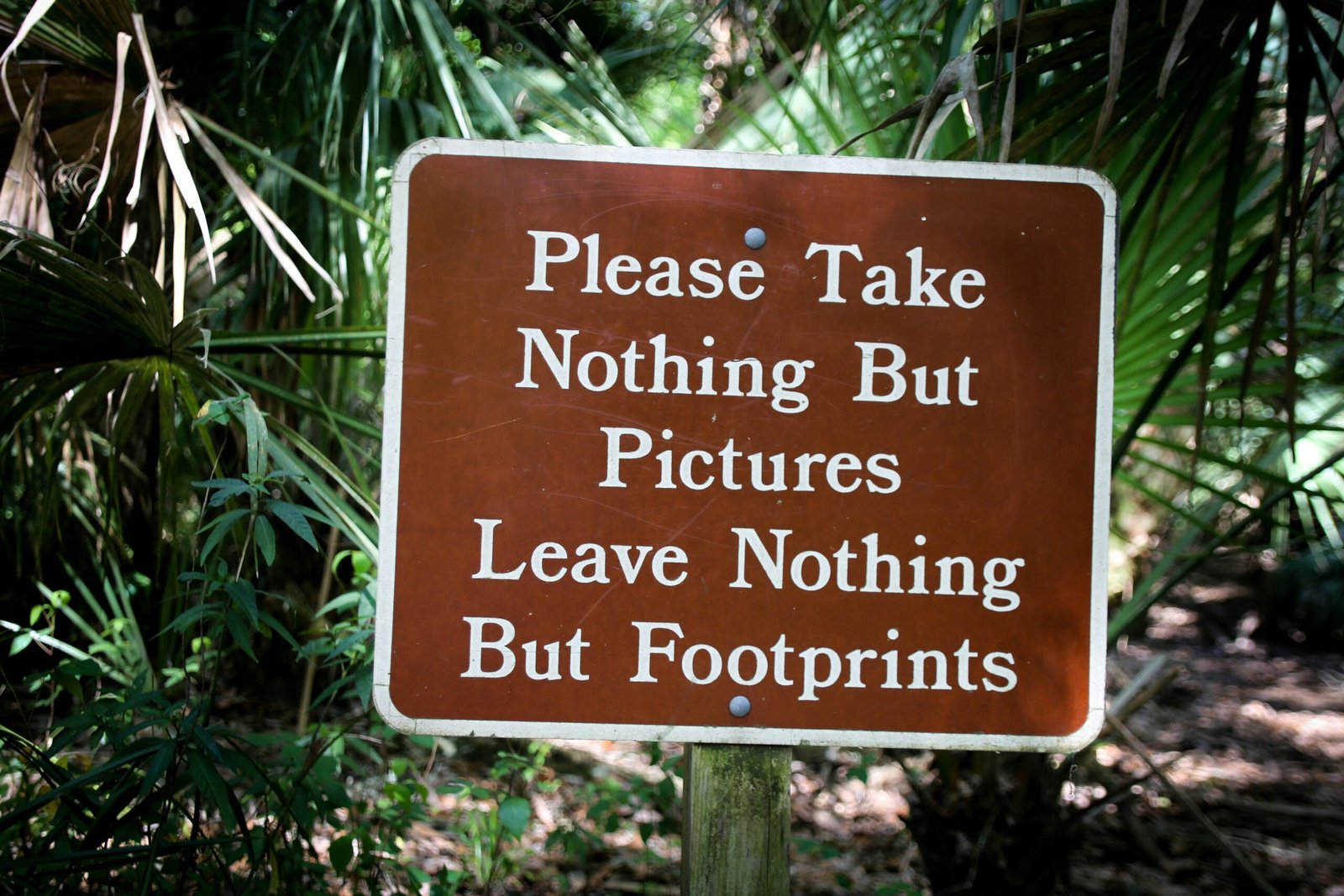Introduction
Being a responsible traveler is not just about having a great trip, but also about making a positive impact on the places you visit. It means being mindful of the environment, respecting local cultures and traditions, and supporting local communities. In this blog post, we will explore some practical tips on how to be a responsible traveler.
One of the key aspects of responsible travel is being mindful of the environment. This involves minimizing your carbon footprint by choosing eco-friendly transportation options whenever possible. Instead of flying, consider taking a train or bus to your destination. Not only will this reduce your carbon emissions, but it will also give you a chance to see the beautiful landscapes along the way.
When it comes to accommodation, opt for eco-friendly hotels or guesthouses that prioritize sustainability. Look for accommodations that have implemented energy-saving measures, such as using solar power or energy-efficient appliances. Additionally, support establishments that promote waste reduction and recycling.
Respecting local cultures and traditions is another important aspect of responsible travel. Take the time to learn about the customs and etiquette of the places you visit. This will not only show respect to the local community but also enrich your travel experience. Be mindful of dress codes, especially when visiting religious sites, and always ask for permission before taking photographs of people.
Supporting local communities is a great way to make a positive impact as a traveler. Instead of eating at international chain restaurants, try local eateries that serve traditional cuisine. This not only supports local businesses but also allows you to experience the authentic flavors of the destination. Similarly, consider purchasing souvenirs from local artisans or markets, as this directly benefits the local economy.
Volunteering or participating in community-based tourism initiatives is another way to support local communities. Look for opportunities to engage with local organizations that focus on environmental conservation or community development. This could involve participating in beach clean-ups, teaching English to local children, or assisting with sustainable farming practices.
By following these practical tips, you can become a responsible traveler and make a positive impact on the places you visit. Remember, responsible travel is not about sacrificing your enjoyment, but rather finding ways to enhance your travel experience while being mindful of the environment, respecting local cultures, and supporting local communities.
4. Consider the Impact of Your Transportation
One important aspect of responsible travel is considering the impact of your transportation choices. Opt for more sustainable modes of transportation, such as taking trains or buses instead of flying whenever possible. If flying is necessary, consider offsetting your carbon footprint by participating in carbon offset programs.
5. Pack Responsibly
When packing for your trip, be mindful of the environment and try to minimize waste. Pack reusable items such as water bottles, shopping bags, and toiletry containers instead of single-use plastics. Consider packing eco-friendly sunscreen and insect repellent to minimize the impact on local ecosystems.
6. Respect Wildlife and Nature
While exploring natural areas, it is crucial to respect wildlife and nature. Follow designated trails, observe animals from a safe distance, and avoid feeding or touching them. Dispose of waste properly and leave no trace behind to preserve the beauty of the environment for future generations.
7. Engage with Local Communities
One of the best ways to immerse yourself in the local culture is by engaging with the local communities. Interact with locals respectfully, learn about their traditions, and support local artisans by purchasing their crafts. This not only enhances your travel experience but also contributes to the preservation of cultural heritage.
8. Be Mindful of Water and Energy Consumption
Conserve water and energy wherever you go. Take shorter showers, turn off lights and air conditioning when leaving your accommodation, and reuse towels and linens when possible. By being mindful of your consumption, you can help reduce the strain on local resources and minimize your ecological footprint.
9. Leave a Positive Impact
Lastly, strive to leave a positive impact on the places you visit. Consider volunteering for local conservation projects or participating in community-based tourism initiatives. Leave a review or recommendation for responsible businesses you encounter, as this can encourage others to support them as well.
By following these steps and being a responsible traveler, you can contribute to the preservation of the environment, support local communities, and make a positive difference in the places you visit.
During Your Trip
Once you have arrived at your destination, there are several things you can do to be a responsible traveler:
1. Reduce Your Environmental Impact
Take steps to minimize your environmental impact while traveling. This includes reducing your energy and water consumption, avoiding single-use plastics, and disposing of waste properly. Consider using eco-friendly transportation options, such as public transport or cycling, whenever possible. Additionally, you can support local conservation efforts by visiting national parks or protected areas and following their rules and regulations. By being mindful of your environmental impact, you can contribute to the preservation of the natural beauty and resources of your destination.
2. Respect Local Cultures and Traditions
Be respectful of the local culture and traditions. Dress appropriately, especially when visiting religious sites, and ask for permission before taking photos of people or their property. Learn a few basic phrases in the local language to show respect and make an effort to understand and appreciate the local customs. It is also important to be aware of and abide by any cultural practices or norms, such as greeting customs or dining etiquette. By respecting the local culture, you can foster positive interactions and create a more enriching travel experience for yourself and the local community.
3. Engage with Local Communities
Interact with local communities in a respectful and meaningful way. Take the time to learn about their way of life, support local artisans and craftspeople, and engage in responsible tourism activities that benefit the community. This could include volunteering, participating in cultural exchanges, or supporting local initiatives. By engaging with local communities, you can gain a deeper understanding of the destination, create connections with the people you meet, and contribute to the local economy in a positive way. This not only enhances your travel experience but also helps to promote sustainable development and preserve the cultural heritage of the place you are visiting.
Overall, being a responsible traveler involves making conscious choices that have a positive impact on the environment, respecting the local culture and traditions, and engaging with local communities in a meaningful way. By following these guidelines, you can contribute to the sustainability and preservation of your destination, while also creating a more rewarding and authentic travel experience for yourself.
4. Reflect on Your Trip
Take some time to reflect on your trip and the impact it had on both you and the places you visited. Consider the ways in which you were a responsible traveler and identify areas where you can improve for future trips.
Think about the cultural and environmental aspects of your trip. Did you respect the local customs and traditions? Did you minimize your use of single-use plastics and other harmful materials? Reflecting on these aspects can help you become an even more responsible traveler in the future.
5. Support Local Businesses
Continue to support local businesses even after your trip is over. Look for ways to purchase products and services from local artisans, restaurants, and accommodations. By doing so, you contribute to the local economy and help sustain the communities you visited.
Consider buying souvenirs that are locally made and support fair trade practices. This ensures that the artisans are paid fair wages for their work and helps preserve traditional craftsmanship.
6. Educate Others
Share your knowledge and experiences with others to raise awareness about responsible travel. Take the opportunity to educate your friends, family, and colleagues about the importance of sustainable tourism and the positive impact it can have on local communities and the environment.
You can organize presentations, write articles or blog posts, or participate in discussions to spread the word. By educating others, you can inspire them to become more conscious travelers and make a difference in their own journeys.
7. Plan Your Next Responsible Adventure
Use what you have learned from your previous trip to plan your next responsible adventure. Research destinations that prioritize sustainable tourism practices and support local communities. Look for eco-friendly accommodations, tour operators, and activities that align with your values.
Consider volunteering or participating in community-based tourism initiatives that allow you to directly contribute to the well-being of the local communities you visit. By planning your next trip with sustainability in mind, you can continue to make a positive impact as a responsible traveler.



